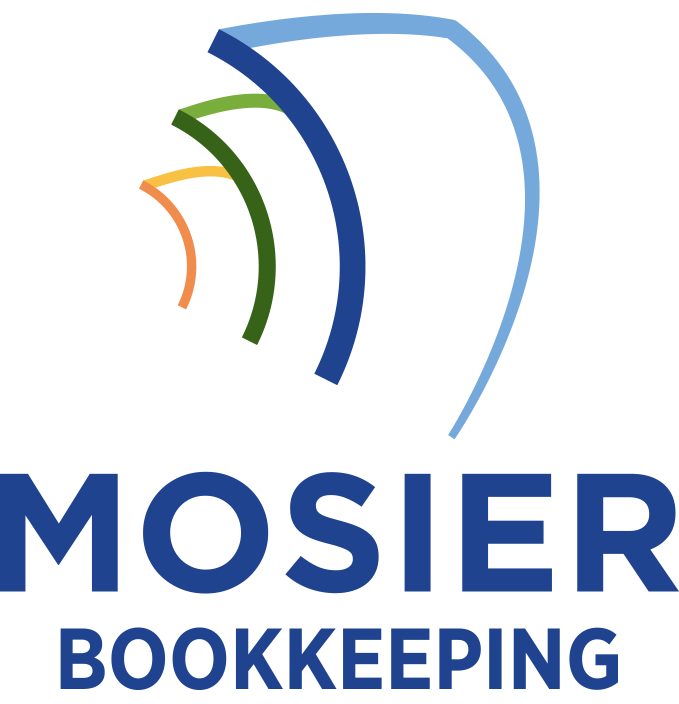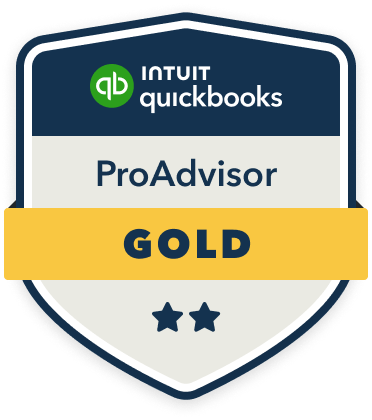To handle bookkeeping for multiple business locations, I recommend implementing a centralized, cloud-based accounting system that integrates real-time data from each site. You’ll need separate bank accounts and unique merchant accounts for each location, along with standardized procedures for expense tracking and reconciliation. I use consistent expense categories and a unified chart of accounts to maintain accurate comparisons across sites. Let me walk you through the essential components for successful multi-location financial management.
Implementing a Centralized Accounting System

When managing multiple business locations, implementing a centralized accounting system serves as the foundation for streamlined financial operations. I recommend selecting cloud-based software that integrates real-time data from each location into a unified dashboard. This system must track location-specific revenue, expenses, and profit margins while maintaining standardized chart of accounts.
I’ll need to establish clear protocols for data entry, receipt management, and daily reconciliation across all sites. By centralizing payroll, accounts payable, and accounts receivable, I’ll gain better control over cash flow and reduce redundant processes. This consolidation enables me to make data-driven decisions and maintain regulatory compliance.
Managing Location-Specific Financial Data
I’ll guide you through managing your location-specific financial data by starting with separate bank accounts for each branch, which enables cleaner tracking and reduces commingling of funds. You’ll need to implement detailed expense tracking systems that categorize costs by location, including rent, utilities, payroll, and location-specific inventory. Your location-based financial management must include precise local tax compliance reporting, as each jurisdiction may have unique requirements for sales tax, payroll tax, and business licenses.
Separate Bank Account Setup
Setting up separate bank accounts for each business location serves as a critical foundation for accurate financial tracking and simplified bookkeeping. I’ve found this approach provides clear visibility into each location’s cash flow and performance metrics.
To maximize the benefits of separate accounts:
- Link each account to location-specific accounting software to automate transaction categorization
- Establish unique merchant accounts for each location’s credit card processing
- Create standardized naming conventions for accounts across locations to streamline reconciliation
This structure empowers you to make data-driven decisions while maintaining tight control over your multi-location operation’s financial management.
Track Location-Based Expenses
Once you’ve established separate bank accounts, tracking location-based expenses becomes your next key focus. I’ll show you how to implement a rigorous expense tracking system that separates costs by location while maintaining overall financial control.
| Expense Type | Tracking Method | Reporting Frequency |
|---|---|---|
| Fixed Costs | Cost Center Codes | Monthly |
| Variable Expenses | Location Tags | Weekly |
| Shared Services | Allocation Keys | Monthly |
| Capital Expenditures | Project Codes | Quarterly |
Record each transaction with location-specific identifiers and establish clear expense categories. I recommend using digital accounting software that allows for location-based filtering and automated expense categorization. This enables real-time monitoring of each location’s financial performance and simplifies consolidated reporting.
Local Tax Compliance Reports
Three distinct tax jurisdictions often apply when managing multiple business locations: local, state, and federal. I’ve found that maintaining precise local tax compliance reports is essential for avoiding penalties and maximizing location-specific deductions.
For each business location, I recommend focusing on:
- Generating separate sales tax reports that reflect varying local rates and special district taxes
- Documenting location-specific business licenses, permits, and regulatory fees
- Tracking payroll tax variations, including city-specific wage taxes and local income tax withholding
I guarantee each location’s financial data aligns with its specific jurisdiction’s reporting requirements while maintaining audit-ready documentation.
Streamlining Multi-Site Expense Tracking

Managing expenses across multiple business locations requires a systematic approach to prevent financial inconsistencies and reporting errors. I recommend implementing a centralized expense management system that standardizes tracking across all sites. You’ll need to assign unique cost centers to each location and establish consistent expense categories for accurate comparisons.
I’ve found that automated expense tracking software with location-specific access permissions works best. It lets you monitor real-time spending, enforce approval workflows, and generate location-specific reports instantly. Connect your point-of-sale systems to automatically categorize expenses and flag unusual patterns that could indicate inefficiencies or compliance issues.
Standardizing Procedures Across Locations
A unified set of bookkeeping procedures forms the backbone of successful multi-location operations. I insist on standardizing these core processes to maintain control and accuracy across all sites:
- Create a centralized chart of accounts that every location must follow, with location-specific sub-accounts for granular tracking
- Implement identical payment processing systems and reconciliation schedules, ensuring daily uploads to your cloud-based accounting platform
- Establish uniform expense categorization and approval hierarchies, including standardized documentation requirements for all transactions
Navigating Different Tax Requirements and Jurisdictions
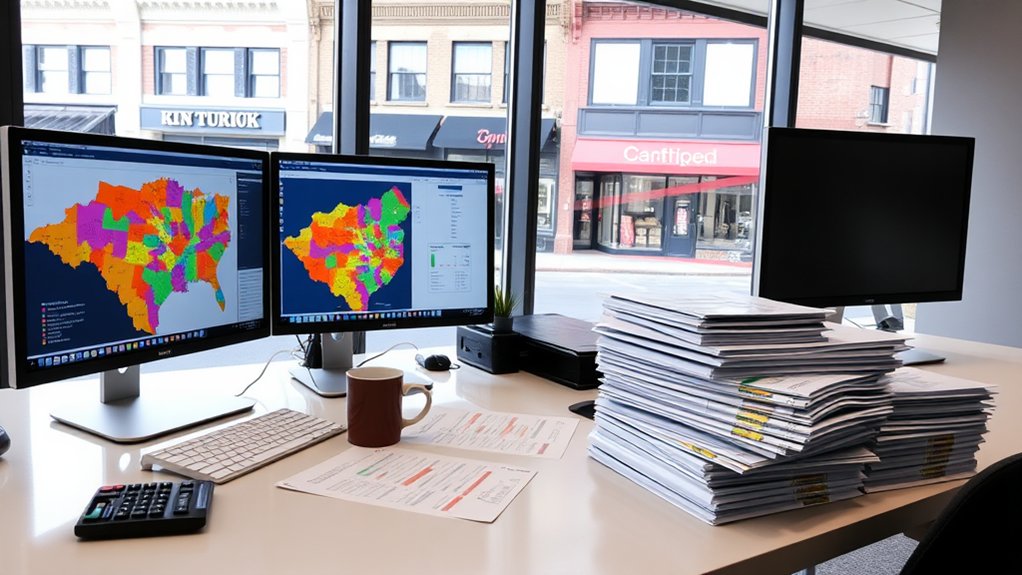
When you’re managing multiple business locations across different states, you’ll need to carefully track varying sales tax rates and filing requirements for each jurisdiction where you operate. I recommend creating a thorough tax calendar that accounts for different filing deadlines and maintaining separate sales tax accounts for each location to guarantee accurate collection and remittance. You’ll also want to verify that each business location has obtained the necessary local permits and tax registrations, as requirements can differ noticeably between cities and counties.
Multi-State Sales Tax
Sales tax compliance across multiple states presents one of the most complex challenges for businesses operating in different locations. You’ll need to carefully track nexus requirements, filing deadlines, and varying tax rates for each jurisdiction where you conduct business.
To master multi-state sales tax management, focus on these critical elements:
- Determine economic nexus thresholds for each state where you sell products or services
- Implement automated tax calculation software that updates rates in real-time
- Set up separate state-specific tax collection accounts and maintain detailed documentation of all interstate transactions
Don’t forget to monitor state-specific exemptions and product taxability rules.
Local Permit Compliance
Operating multiple business locations requires careful attention to local permit compliance, as each jurisdiction maintains its own unique set of requirements, deadlines, and fee structures.
I recommend creating a detailed permit matrix to track each location’s business licenses, health permits, signage approvals, and zoning certifications. You’ll need to monitor renewal dates, fee schedules, and regulatory changes across municipalities.
Consider designating a compliance officer or using permit management software to prevent costly lapses. I’ve found it essential to maintain relationships with local authorities and schedule periodic audits of your permit portfolio. This proactive approach helps you avoid fines and potential business interruptions.
Leveraging Technology for Multi-Location Reporting
As businesses expand across multiple locations, modern technology offers powerful solutions for consolidated financial reporting and analysis. I recommend implementing cloud-based accounting software that synchronizes data across all locations in real-time.
- Deploy integrated point-of-sale systems that automatically feed transaction data into your primary accounting platform
- Utilize location-specific tracking codes to generate granular performance metrics and segment reporting
- Set up automated bank feeds and reconciliation tools that categorize transactions by location while maintaining centralized control
This tech-driven approach eliminates manual data entry, reduces errors, and provides instant visibility into each location’s financial performance.
